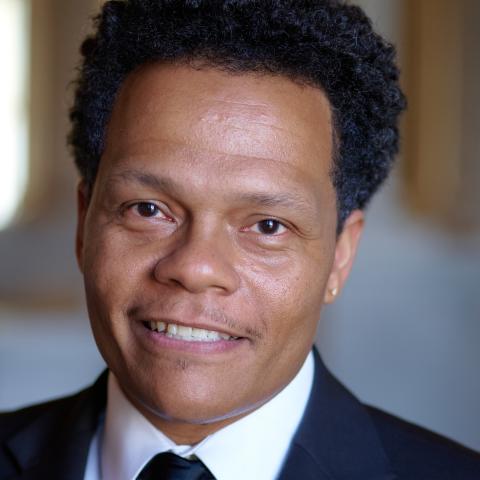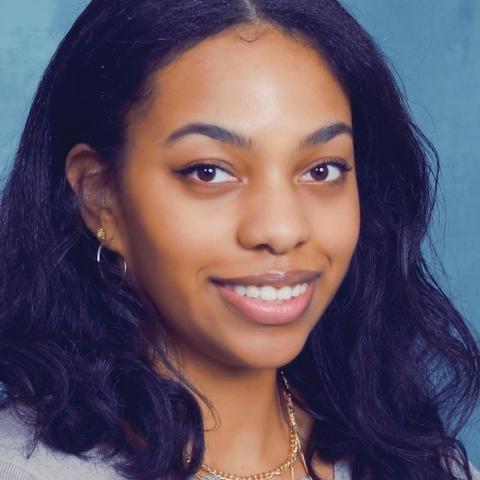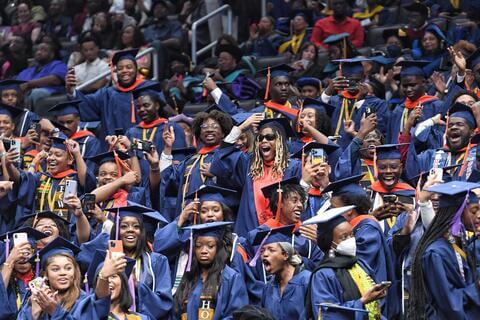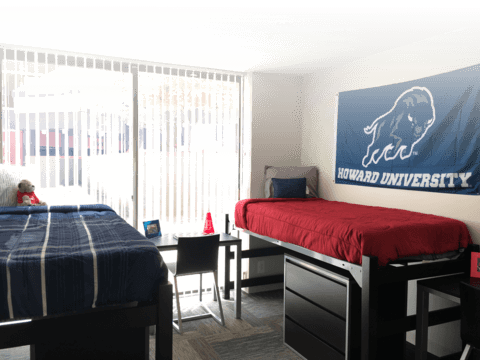Office of Student Accessibility
Howard University is committed to ensuring that all students have equal access to the university's programs and offerings. The Office of Student Accessibility (OSA) provides support to students with disabilities through programming and processing requests for reasonable accommodations.
How can we help?
Monday - Friday | 9:00 AM - 5:00 PM
Wayne A.I Frederick Undergraduate Library, Sublevel 1, Suite L013
EM: Accessibility@howard.edu
PH: 202-238-2424 TDD 202-238-2425
Faculty Resources
Sample Syllabus StatementAccommodations for Faculty and Staff
Office of Human ResourcesProspective Students FAQ's
Should I disclose my disability when applying for admission?
The decision to self-disclose a disability during the admission process is a student’s personal choice. All students admitted to Howard University are considered for acceptance based on criteria of GPA, SAT/ACT scores, ranking in class etc.
Howard University does not have a separate admissions process or criteria for students with disabilities. If you have been denied admission and feel that your documentation of disability could shed light on your academic record then we encourage you to consider self-disclosure.
If prior to applying, you know that you do not meet the standard admissions criteria, and you feel that your disability documentation provides important academic information, then consider speaking directly with an admissions counselor about your disability.
Can we visit Student Accessibility Services while on a campus tour?
If you are planning to visit our campus as you select a university, feel free to contact Student Accessibility Services for an appointment with a professional staff member if you would like to discuss specific accommodations in more detail.
Transitioning from High School to Post-Secondary
Do students in Special Education classes (IDEA) or who had a 504 plan in high school automatically receive the same accommodations and services as they did in high school?
The laws governing mandated accommodations for students with disabilities are different at the post-secondary level (colleges and universities) than K-12. In some cases, the accommodations students receive in high school may be the same, but some accommodations may not be reasonable and appropriate at a college level. This is why each student’s documentation is reviewed and a new accommodation plan is discussed with the disability services staff.
The relevant laws include IDEA in K-12 environments and ADAA in post-secondary environments. Below is a brief comparison of the two.
Individuals with Disabilities Education Act
- Applies to individuals with disability in K-12. IEP plan
- Guarantees free, appropriate public education
- Provides for special education and related services
- Does not apply to post-secondary education
Americans with Disability Act Amended
- Applies to all persons with a disability. It is a civil rights law.
- Prohibits discrimination.
- Individuals must be “Otherwise Qualified” and must be able to meet the academic, technical and essential functions of the university and program of study
- Focuses on providing access
What role can parents have in requesting accommodations in college?
A student who is 18 years old or older is legally recognized as an adult. As an adult, the student must self identify to Disability Services and request accommodations. Accommodation requests will only be accepted from the student, not from his or her parents. It is often the case when transitioning to college that parents ask to be included in the first appointment with Disability Services. With the student’s approval, this can be very helpful.
Additional information may be found my visiting:
US Department of Education (www.ed.gov): A Transition Guide to Post-Secondary Education and Employment for Students and Youth with Disabilities
National Joint Committee on Learning Disabilities (https://njlcd.org): Considerations for Transition from High School to Postsecondary Education
Transfer & Incoming Graduate Students
If I am receiving accommodations at another college or university will I automatically get the same accommodations at Howard University?
Each university may have different guidelines related to documentation and what constitutes a reasonable accommodation. Upon transfer or admittance to Howard University information from a previous school is helpful but it is still necessary for Student Accessibility Services staff to review your documentation and determine what is reasonable at our institution.
Accommodation Requests - FAQ's
How do I apply for Disability Services?
Students must self identify to Disability Services and request accommodations (this is separate from the general admissions process). You will be asked to provide documentation and to complete forms related to your accommodation requests.
If I am receiving accommodations at another college or university will I automatically get the same accommodations at Howard University?
If I am receiving accommodations at another college or university will I automatically get the same accommodations at Howard University?
Each university may have different guidelines related to documentation and what constitutes a reasonable accommodation. Upon transfer to Howard University information from a previous school is helpful but it is still necessary for Disability Services staff to review your documentation and determine what is reasonable at our institution.
What must be included in “documentation of disability”?
Students whose disabilities must provide complete testing reports, diagnostic impressions and recommendations for reasonable accommodations from qualified licensed professional on their office letterhead.
In the case of students with learning disabilities a letter from the guidance counselor or old IEP reports are not appropriate documentation of disability. The full scale psycho-education battery with clear diagnosis of a disability with educational recommendations are required.
Students with ADD, emotional and physical disabilities must provide a specific diagnosis based on the current impact of the disability on academic performance. A diagnostic evaluation must have been completed within the last three years.
When and where do I send my disability documentation?
Students with disabilities who have been admitted to Howard University and wish to request accommodations must submit documentation to Disability Services. It is extremely helpful if documentation is sent to DS prior to the appointment when accommodation requests are discussed.
Do students in Special Education classes (IDEA) or who had a 504 plan in high school automatically receive the same accommodations and services as they did in high school?
The laws governing mandated accommodations for students with disabilities are different at the post-secondary level (colleges and universities) than K-12. In some cases the accommodations students receive in high school may be the same, but some accommodations may not be reasonable and appropriate at a college level. This is why each student’s documentation is reviewed and a new accommodation plan is discussed with the disability services staff.
What role can parents have in requesting accommodations in college?
A student who is 18 years old or older is legally recognized as an adult. As an adult, the student must self identify to Disability Services and request accommodations. Accommodation requests will only be accepted from the student, not from his or her parents. It is often the case when transitioning to college that parents ask to be included in the first appointment with Disability Services. With the student’s approval, this can be very helpful.
When and where do I send my disability documentation?
Students with disabilities who have been admitted to Howard University and wish to request accommodations must submit documentation to Disability Services. It is extremely helpful if documentation is sent to DS prior to the appointment when accommodation requests are discussed.
Available Resources - FAQ's
Is there someone who will closely monitor the student’s progress?
The University setting requires students to act as independent adults. If a student comes to the Disability Services Office every effort will be made to get that student back on line within the parameters of our services. However, daily monitoring is not available, thus students with a high level of independence and advocacy skills fare better at Howard University.
Are readers available?
Alternative Format Texts will be ordered or prepared for eligible students. Many of these texts utilize digital voice.
Are single rooms available in the dormitory for students with disabilities?
Any student may request a single room from Campus Living. However, to be granted a single room as a disability accommodation requires thorough documentation of disability which clearly reflects the need for a single room. Issues related to distraction free study space for students with learning disabilities and attention deficit disorder are often addressed using other accommodations.
Do you have special tutoring for students with disabilities?
Tutoring programs are operational in select departments and are open to all University students providing small group tutorials some classes. Individual tutors for students with disabilities are not provided although the student may certainly recruit and hire his or her own tutor. These tutorials are study skills based and are not a recitation or re- teaching of the classroom material.
Can I get special help with writing or math?
The University provides math and writing labs to all students. The math lab is open on a drop-in basis whereas the writing lab is available both for drop-ins and by appointment. These services are held in different locations on campus and thus a student with a disability must be highly motivated and independent enough to follow through with using these resources. For students with hand or arm impairments, the voice activated computer software Dragon NaturallySpeaking is available.
Are Personal Care Attendants available?
The University does not recruit or hire personal care attendants for any student.
Documentation and Records FAQ's
What must be included in “documentation of disability”?
Students whose disabilities must provide complete testing reports, diagnostic impressions and recommendations for reasonable accommodations from qualified licensed professional on their office letterhead.
In the case of students with learning disabilities a letter from the guidance counselor or old IEP reports are not appropriate documentation of disability. The full scale psycho-education battery with clear diagnosis of a disability with educational recommendations are required.
Students with ADD, emotional and physical disabilities must provide a specific diagnosis based on the current impact of the disability on academic performance. A diagnostic evaluation must have been completed within the last three years.
Will professors and my academic advisor automatically be informed about my disability and accommodation needs?
Professors receive information about necessary accommodations on an as needed basis. The student determines which classes and professors will receive this information. It is often very helpful for academic advisors to have some information about disability and needs; however notification of advisors would not necessarily be an automatic process through Disability Services. Each student’s preferences and needs are considered on a case-by-case basis.
If students use Disability Services will it show up on their academic record?
No, there are no flags or identifying markers on students’ academic record if they utilize disability accommodation. Further, documentation and disability services records are maintained separately from other academic records.
Meet the Office of Student Accessibility Team

Paris L. Adon, Ed.D.
Director of Student Services
Office of Student Accessibility
paris.adon@howard.eduMiguel Anthony Capers, EdD
He, Him, His
Testing and Accommodation Coordinator
Office of Student Accessibility




